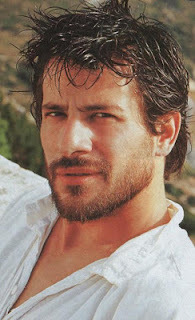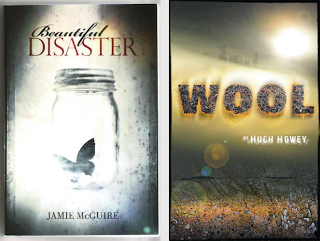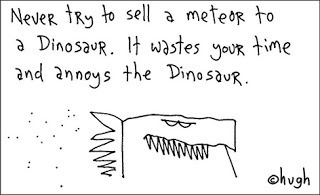Lexi Revellian's Blog, page 15
August 19, 2012
Problems with guns
 In the post-apocalyptic world of my WIP, the villain wants to get hold of a gun. With no police or legal system, a man with a gun is top dog and can get away with murder. So I did some research on guns.
In the post-apocalyptic world of my WIP, the villain wants to get hold of a gun. With no police or legal system, a man with a gun is top dog and can get away with murder. So I did some research on guns. London's Metropolitan Police authorized firearms officers use Glock 17s. As my novel is set in London, that's the most likely gun to be available. A Glock 17 is semi-automatic, and has seventeen cartridges in the standard magazine. They are extremely reliable and don't go off if dropped. Pulling the trigger deactivates the safety catches. Fine so far. Then I did more research (so easy with Google - writers are spoiled these days).
When a gun is fired, the noise is 140 - 160 decibels. Loud enough for one shot to permanently damage the hearing of the firer and anyone close by. (A silencer will bring that down to 120 - 130, not actually all that silent as it is in movies.) I found some worrying forums where young men had fired a friend's gun a few times and were asking whether the tinnitus and muffled hearing they now experienced would ever go away. Watch any action film, and you can understand why people don't realize the danger; heroes without ear muffs/plugs shoot away like mad, are shot at, then don't spend the rest of the film with most of their dialogue consisting of, What was that you just said?
I also discovered that you need hearing protection if you are going to spend more than fifteen minutes on a snowmobile (100 decibels). My characters do that. So I have a choice between irresponsibly promulgating the idea that guns and sleds don't require earplugs, or holding up the action with a Health and Safety message.
Rats.
Published on August 19, 2012 05:07
August 9, 2012
Looking back on two years as an indie author

Two years ago today I self-published my first book, Remix. It was a book I felt sure was publishable, so I'd wasted spent a year attempting to find an agent, confident of success. As those of you who hang on my every word will know, I got close but no cigar. So I decided to go it alone.
Two years on, I've self-published four novels and a collection of short stories, and sold 58,648 ebooks, plus some paperbacks. I sold more books the first year, but made more money the second - much more money than a publisher would have been likely to offer me. I still own all the rights to my work, and all the profits come straight to me without an agent's deductions or a publisher's delay (mwahahahahaha).
Even better, I know from readers' reviews and emails that my books have entertained quite a lot of people for a few hours, and a writer can't ask for more than that. I now know that if I write a book that I think is good, a proportion of readers are likely to agree with me.
There have been huge changes in the publishing industry in those two years, and it's still changing. Self-publishing has gone from being the province of the deluded to the best way to reach readers for all but top-earning established authors. A considerable number of authors have had mega-success, the most recent I've noticed being Hugh Howey and Nick Spalding, while many are enjoying more modest rewards that would have been unimaginable two years ago.
Writers like me, rejected by traditional publishing, have no reason to love it; but it's interesting that most of the grumbling and criticism is coming the other way, from publishers, agents and legacy authors who feel threatened by this unruly mob of indies who had the temerity to succeed when by everything they have ever believed, we should have failed miserably.
I like success. I'm impressed by anyone who can get a traditional publishing deal in these hard times. I'm also impressed by anyone who does well self-publishing. I can't wait to see how the next two years work out.
Published on August 09, 2012 05:11
August 5, 2012
A thought on easy reads
 One remark people often make about my books is that they are an easy read. Discerning readers mark me up for this, realizing that there is no virtue in a book being difficult - that doesn't make it clever or deep, it's just a sign of bad writing.
One remark people often make about my books is that they are an easy read. Discerning readers mark me up for this, realizing that there is no virtue in a book being difficult - that doesn't make it clever or deep, it's just a sign of bad writing.Who wants confusing paragraphs you have to reread to get the sense of, or dialogue where it's not clear who is speaking, or passages where you are not certain what is going on? Good prose becomes invisible, and never stands between the reader and the story.
I spend a lot of time going over my books as I write, tweaking and improving, adding bits and changing words, thinking about the characters. As well as clarity, this adds depth and detail that makes for a more rewarding read. I'm doing it now with Ice Diaries, the WIP. (I know some schools of thought maintain an author should plough straight through the first draft, never looking back until it is complete; but in my opinion the only rules worth abiding by are those for spelling, punctuation and grammar. Otherwise, I believe in doing whatever works for you.)
So I don't get irked when a reader races through one of my books and assumes it was as easy for me to write as for her to read. I take it as a huge compliment.
Published on August 05, 2012 03:41
July 27, 2012
More on Writer's Angst
Writing for publication is, I always say, one of the most angst-prone things you can do. I bet even the richest and most-read novelist of the day, JK Rowling, has her worries about the forthcoming release of The Casual Vacancy in September. Here is a handy cut-out-and-keep list of many of the ways Writer's Angst can get you:
The writers I admire are so brilliant, is there any point my trying to write at all? I'll never be as good as they are.Isn't it hugely hubristic to believe that anyone will want to spend time reading something that is effectively no more than the contents of my mind? Who do I think I am?Eek! It's going to be complete at 30,000 words. Way too short.The plot's rambling out of control! 150,000 words already. I'll never reach the end!No! I've come across another book written two years ago on a very similar theme. Everyone will think I stole the idea.Supposing it's rubbish and no one wants to tell me?Gah! A writer I respect was very critical about the bit he read. I'm doing it all wrong. Sob.It must be rubbish because I've got all these form rejections from agents. They know what readers want, surely. Proper writers get agents and a publishing deal.Supposing when I put it for sale on Amazon no one buys it?And later:My first book is a success, hurrah - has actually sold well, readers have said they enjoyed it, I've made good money - but I'll never be able to repeat my success because...I used up all my ideas in the first book. Now I am but an empty husk, who will never create an interesting character or story line ever again.This book is a struggle. I don't remember the last one being as hard to write. Probably because this one is No Good.I've forgotten how to write! Every sentence is convoluted and awkward. Woe!Other people write loads more words per day than I do. Why am I so slow?By the time I get this one finished, the people who loved my first book will have forgotten my name.Later:Okay, so Book Two is out and doing rather well - some readers even prefer it to Book One - but I'll definitely never be able to do it a third time...MORAL: Do not fret.
Everything will be all right. Do not be self-critical - in an imperfect world, you do not need to be perfect. No one else is. Lighten up. Keep writing, one word at a time. You can do it.
The writers I admire are so brilliant, is there any point my trying to write at all? I'll never be as good as they are.Isn't it hugely hubristic to believe that anyone will want to spend time reading something that is effectively no more than the contents of my mind? Who do I think I am?Eek! It's going to be complete at 30,000 words. Way too short.The plot's rambling out of control! 150,000 words already. I'll never reach the end!No! I've come across another book written two years ago on a very similar theme. Everyone will think I stole the idea.Supposing it's rubbish and no one wants to tell me?Gah! A writer I respect was very critical about the bit he read. I'm doing it all wrong. Sob.It must be rubbish because I've got all these form rejections from agents. They know what readers want, surely. Proper writers get agents and a publishing deal.Supposing when I put it for sale on Amazon no one buys it?And later:My first book is a success, hurrah - has actually sold well, readers have said they enjoyed it, I've made good money - but I'll never be able to repeat my success because...I used up all my ideas in the first book. Now I am but an empty husk, who will never create an interesting character or story line ever again.This book is a struggle. I don't remember the last one being as hard to write. Probably because this one is No Good.I've forgotten how to write! Every sentence is convoluted and awkward. Woe!Other people write loads more words per day than I do. Why am I so slow?By the time I get this one finished, the people who loved my first book will have forgotten my name.Later:Okay, so Book Two is out and doing rather well - some readers even prefer it to Book One - but I'll definitely never be able to do it a third time...MORAL: Do not fret.
Everything will be all right. Do not be self-critical - in an imperfect world, you do not need to be perfect. No one else is. Lighten up. Keep writing, one word at a time. You can do it.
Published on July 27, 2012 10:37
July 19, 2012
The appeal of the bad boy
 Fiction is different from life, and nowhere is it more important to remember this than with bad boy love interests. A health warning: readers, don't try this at home.
Fiction is different from life, and nowhere is it more important to remember this than with bad boy love interests. A health warning: readers, don't try this at home.Typical bad boy behaviour, fictional and in real life:
1. Relentless promiscuity, until he meets our heroine, falls deeply in love and changes his ways, becoming forever monogamous. Hmm. Remember that proverb concerning leopards and spots? Much more likely you'll turn out to be just one of the crowd.
2. Dangerous driving, particularly of large motorbikes. Don't get too fond of him; doctors refer to motorcyclists as organ donors.
3. Drug use and/or excessive drinking, possibly smoking. This will spoil his gorgeous looks and his health, given time.
4. An explosive temper with a tendency to beat up people he is in conflict with. You'll be visiting him in prison if he makes a habit of physical assault. Plus, cauliflower ears and chipped teeth are not attractive.
So why do we writers keep on writing about these guys? I'm doing it myself in the WIP. I think it's because they are more fun to write/read about than the sort of man one would actually want to get involved with; kind, sensible, non-violent, steady, willing to do his share of the chores.
I'm yawning already...
Published on July 19, 2012 04:17
July 11, 2012
Go indie, young writer!
 Recently I read Jamie McGuire's indie hit, Beautiful Disaster. The novel is far from perfect, but a huge number of readers find its account of a tempestuous romance compelling, and have made it into an indie hit.
Recently I read Jamie McGuire's indie hit, Beautiful Disaster. The novel is far from perfect, but a huge number of readers find its account of a tempestuous romance compelling, and have made it into an indie hit.It's now been signed up by Atria books, an imprint of Simon & Schuster, for immediate release as an ebook with print books to follow.
Hugh Howey is the successful self-published author whose novel Wool is to be made into a film with the director Ridley Scott. He said on Kindleboards, on a thread about indies being picked up by traditional publishers:
"You wanna know what's interesting? I started threads about this possibility on another writing forum and was laughed at, mocked, and bullied right out of there. [Lexi: hmm, no prizes for guessing which forum that was.] One thread was about the possibility that agents would begin scouring the bestselling indies for clients. I was ridiculed. I suggested that self-pubbing was always the best way to begin one's career, no matter the quality of the work. My argument was that flawed works were better off published at all rather than in slush piles; mid-list quality work was better off with a lifetime trickle rather than a few months spine-out in crumbling bookstores; and stellar work is better off in the author's possession when it makes it big with readers. There's no work of any quality that is better served on the traditional route, not with the disparity in rights and royalties."
Anyone still in denial about this?
Published on July 11, 2012 04:16
July 2, 2012
When to let the reader do the work...
 I believe in fiction the particular is more interesting than the general. His London flat? His Mayfair flat or his Willesden flat will tell the reader more for the same number of words. So Nick Cavanagh in
Replica
drives an Audi TT Coupé 1.8, while in
Remix
Jeff Pike smokes Marlboros, and a celebration takes place at the Dorchester. To my amusement, one reviewer remarked on this, and speculated that I was making up the meagre income from writing with product placement fees.
I believe in fiction the particular is more interesting than the general. His London flat? His Mayfair flat or his Willesden flat will tell the reader more for the same number of words. So Nick Cavanagh in
Replica
drives an Audi TT Coupé 1.8, while in
Remix
Jeff Pike smokes Marlboros, and a celebration takes place at the Dorchester. To my amusement, one reviewer remarked on this, and speculated that I was making up the meagre income from writing with product placement fees.But there are exceptions to this rule. Jane Austen seldom describes the physical features of her characters. But she is such a good writer that I am sure all her readers have a clear image of them in their minds. I am certain for instance that in Emma, Emma is a brunette and Harriet a blonde, though we are never told. All we know about Elizabeth Bennett's appearance is that she is not bad-looking and has fine eyes - and this we are told by Mr Darcy. I think it wise to resist the impulse to convey every detail the author sees so plainly in his imagination to the novel's readers. Keep description brief and vivid. Leave a little room between the lines for their imagination to work, and the book will be partly theirs and stay with them forever.
There is a passage in Replica where Nick opens the front door on to a snowy street clad only in his boxers. I asked my daughter, who is nearer the character's age group than I, what his boxers should look like. (After online research, I favoured black Calvin Kleins.) She said, don't describe them, then every woman reading it will imagine him wearing her favourite type of boxers. She was right.
Published on July 02, 2012 06:22
June 26, 2012
Trad or Indie - All Argued Out
 Recently I got involved on The Writers' Workshop in one of those arguments which as Jane Austen has it, is too much like a dispute. It was over whether self-publishing is a viable alternative to traditional publishing. The blog owner, Harry Bingham, asked me to write a post, which you can see here. The definitive article on the subject has already been written by Robert Bidinotto: 10 Reasons Why You Should Skip Traditional Publishers and Self-Publish Ebooks Instead.
Recently I got involved on The Writers' Workshop in one of those arguments which as Jane Austen has it, is too much like a dispute. It was over whether self-publishing is a viable alternative to traditional publishing. The blog owner, Harry Bingham, asked me to write a post, which you can see here. The definitive article on the subject has already been written by Robert Bidinotto: 10 Reasons Why You Should Skip Traditional Publishers and Self-Publish Ebooks Instead.Today I came across a new site, Write-Connections, and blow me, what were they discussing on the forum but: Self publishing or traditional publishing?? A topic so hot it demanded two question marks. My mind reeled away at the prospect of the same old points being made, the prejudice and ignorance, the denial and defensiveness. And I realized I'm all argued out. Plus it doesn't matter what anyone says, publishing has changed with the advent of digital, is still changing, and will never be the same again.
If anyone wants to turn a blind eye to what is happening, that is his prerogative. I will in future wander past, smiling. I might even pat him on the head, if it wasn't stuck beneath the sand.
Published on June 26, 2012 02:37
June 16, 2012
Suspending disbelief
 Writers tread a narrow line. The stories we tell are made up, and readers know this; but we need to make them forget that fact while immersed. The appeal of a novel is that it imposes shape and meaning on the chaos that is life. Fiction has a beginning, middle and end, and life does not. But woe betide the writer who strains his reader's credulity to the point where it gives way and he/she says, "That wouldn't happen."
Writers tread a narrow line. The stories we tell are made up, and readers know this; but we need to make them forget that fact while immersed. The appeal of a novel is that it imposes shape and meaning on the chaos that is life. Fiction has a beginning, middle and end, and life does not. But woe betide the writer who strains his reader's credulity to the point where it gives way and he/she says, "That wouldn't happen."I think there are two kinds of implausibility in fiction; the big stuff, like dragons, magic, sparkly vampires, aliens etc. which readers tend to swallow whole, and the little improbabilities readers or viewers tend to choke on.
An example of the second type: recently I treated myself to the complete series of Firefly, and am enjoying an episode each evening. For those who haven't seen it, it was conceived by Joss Whedon, who went on to make Buffy the Vampire Slayer. Fox cancelled the series after only fourteen episodes; insane, as it had the quality, set-up and characters to have been as long running and successful as MASH. In one episode, Out of Gas, the space ship Serenity is stranded in space with only a few hours' air due to the failure of a part of the engine; something about the shape and size of a hair drier. And I thought, if the failure of that part is so catastrophic, you'd carry at least two spares. It wouldn't be bad luck if you got stranded that way, it would be the mechanic's fault, or the captain's.
I put a lot of effort into making my stories plausible and removing plot holes - some improbable things may happen, but I hope my characters' reactions to them are believable. Readers do not always agree with me. "The best science-fiction should surely hold a smidgeon of credibility but the premise of this tale was utterly absurd," is one comment on Replica. Ah well. I have the same problem with most chick lit, James Bond and Dan Brown.
Published on June 16, 2012 05:06
June 5, 2012
You don't have to be right, just convincing


I've just biked from my workshop in Hoxton to the Gherkin, 30 St Mary Axe. A good day to do it, though the weather is cold and blustery. (Call this June? Huh!) Few cars and vans, just red buses careering around in packs with a gleeful freedom non-Bank Holiday traffic does not allow.
I went to get a feel for the building close to, and take some photos, as part of my WIP is set there. In my fictional 2018 London, twenty metres of snow cover the city, and only the taller buildings are visible. One of my characters conceals his snowmobile inside the Gherkin. I've studied the website carefully. Of course, what I'd really like is to wander round the building, camera in hand, but this is not possible. Luckily, it's not necessary either. I can make it up.
Because in fiction, you don't need to be right, just convincing. I don't know any Security Service officers, but no readers have yet complained that Nick Cavanagh in Replica is an unbelievable MI5 spec op. Probably because they don't know any either. Nor has anyone said the scene set in the Dorchester in Remix with information gleaned from their website and Google Street View lacks verisimilitude.
My advice: do all the research you can, go to the places that figure in your books, talk to people doing the jobs your characters do if at all possible - then make the rest up. Do it well, and nobody will know.
N.B. If any Security Officers are reading this and wish to put me right, email - I'm very discreet :o)
Published on June 05, 2012 04:44



